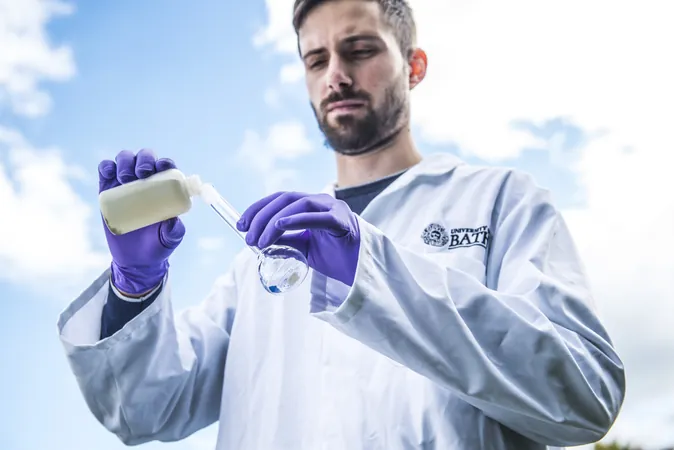
The Alarming Truth About 'Superbugs': Why Cutting Antibiotics Alone Won't Save Us
2025-06-17
Author: Arjun
A groundbreaking study from the University of Bath reveals a startling truth: simply prescribing fewer antibiotics isn't enough to stave off the burgeoning threat of 'superbugs'—bacteria that defy our most potent medicines.
Antimicrobial Resistance: A Global Health Crisis
Antimicrobial resistance (AMR) is a pressing issue highlighted by the World Health Organization, responsible for a staggering five million deaths each year worldwide. This occurs when bacteria evolve, becoming resistant to antibiotics that once effectively treated infections.
What Fuels AMR?
The problem escalates through various avenues: the overuse of antibiotics in medical settings, their misuse in treating bacterial infections, and their widespread application in livestock for increased meat production. Additionally, bacteria can exchange resistance genes among themselves in the environment, further complicating matters.
Study Insights: The Unsettling Findings
Researchers meticulously examined samples from wastewater treatment plants across southwest England over a two-year period, coinciding with the COVID-19 pandemic. They compared these with data from before 2019 and matched the findings with antibiotic prescriptions.
Surprisingly, even though antibiotic prescriptions saw a seasonal decline and related drug levels dropped in wastewater during 2017-2019, AMR gene levels remained steady. It wasn't until 2020—during COVID lockdowns—that both antibiotic levels and AMR genes plummeted, only to surge again post-lockdown as people interacted more.
Experts Sound the Alarm
Professor Barbara Kasprzyk-Hordern from CWBE warns, "The growing threat of AMR jeopardizes not just our health but essential medical procedures that rely on effective antibiotics. While reducing antibiotic use is crucial, our findings illustrate that it's insufficient to combat the underlying issue."
A Call for a Unified Approach
The researchers advocate for a comprehensive "One Health" strategy, urging policymakers to consider antibiotic applications in both human and animal health, as well as the broader environmental impacts.
Innovative Monitoring for the Future
Moving forward, the University of Bath is spearheading initiatives to tackle urgent public health challenges through their newly launched Center of Excellence. This center will feature the first living lab, enabling continuous research on pathogen exposure and its effects on health outcomes.
A Glimmer of Hope?
Dr. Like Xu, the study's lead author, emphasized the critical nature of monitoring AMR, stating, "Our research highlights wastewater-based epidemiology as a powerful, cost-effective tool to track antibiotic use and the transmission of resistance genes."
As the battle against AMR escalates, it’s clear that a multifaceted approach is essential. The fight against 'superbugs' demands not just reduced usage but a deeper understanding of their environmental and biological intricacies.




 Brasil (PT)
Brasil (PT)
 Canada (EN)
Canada (EN)
 Chile (ES)
Chile (ES)
 Česko (CS)
Česko (CS)
 대한민국 (KO)
대한민국 (KO)
 España (ES)
España (ES)
 France (FR)
France (FR)
 Hong Kong (EN)
Hong Kong (EN)
 Italia (IT)
Italia (IT)
 日本 (JA)
日本 (JA)
 Magyarország (HU)
Magyarország (HU)
 Norge (NO)
Norge (NO)
 Polska (PL)
Polska (PL)
 Schweiz (DE)
Schweiz (DE)
 Singapore (EN)
Singapore (EN)
 Sverige (SV)
Sverige (SV)
 Suomi (FI)
Suomi (FI)
 Türkiye (TR)
Türkiye (TR)
 الإمارات العربية المتحدة (AR)
الإمارات العربية المتحدة (AR)